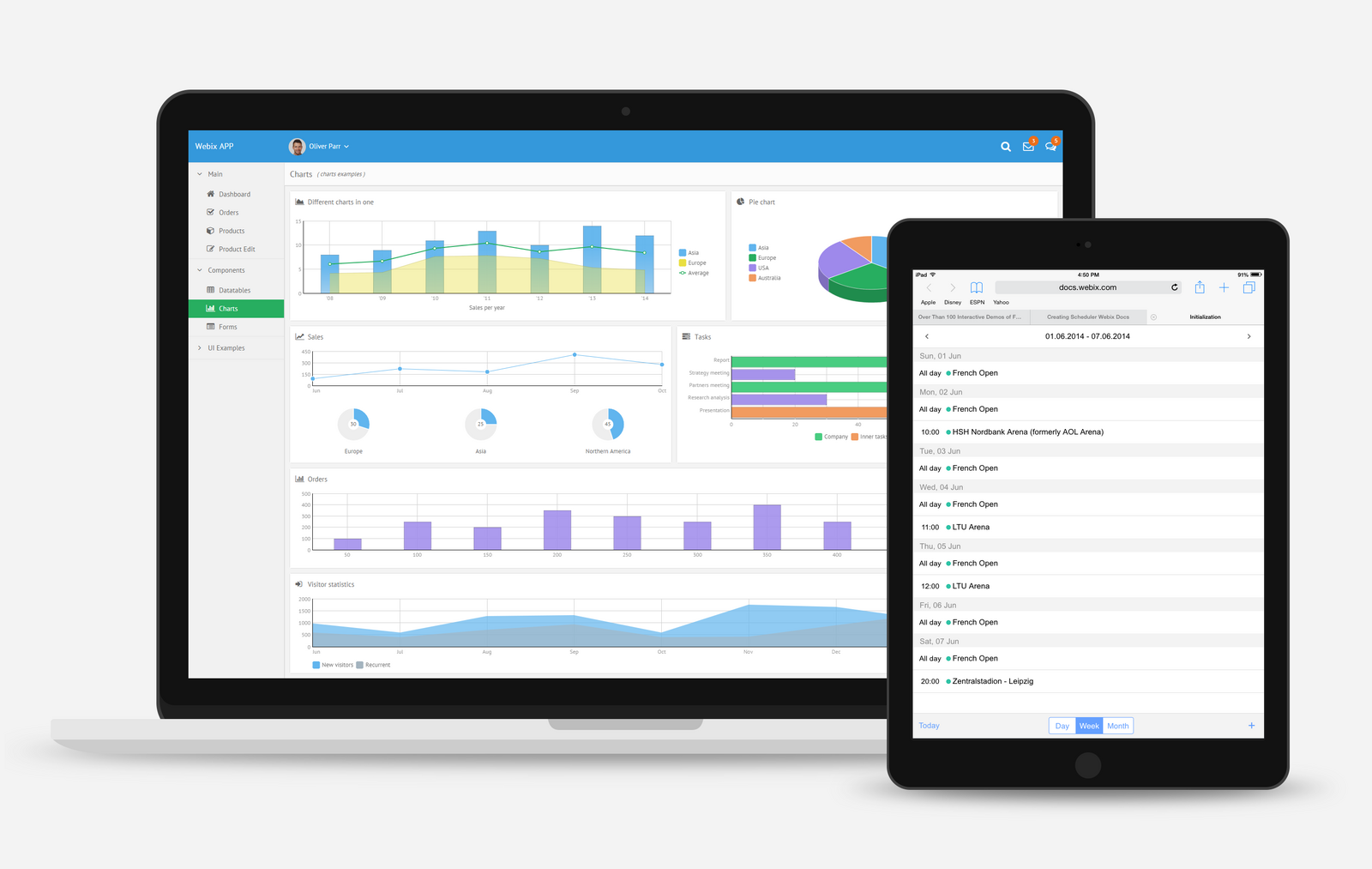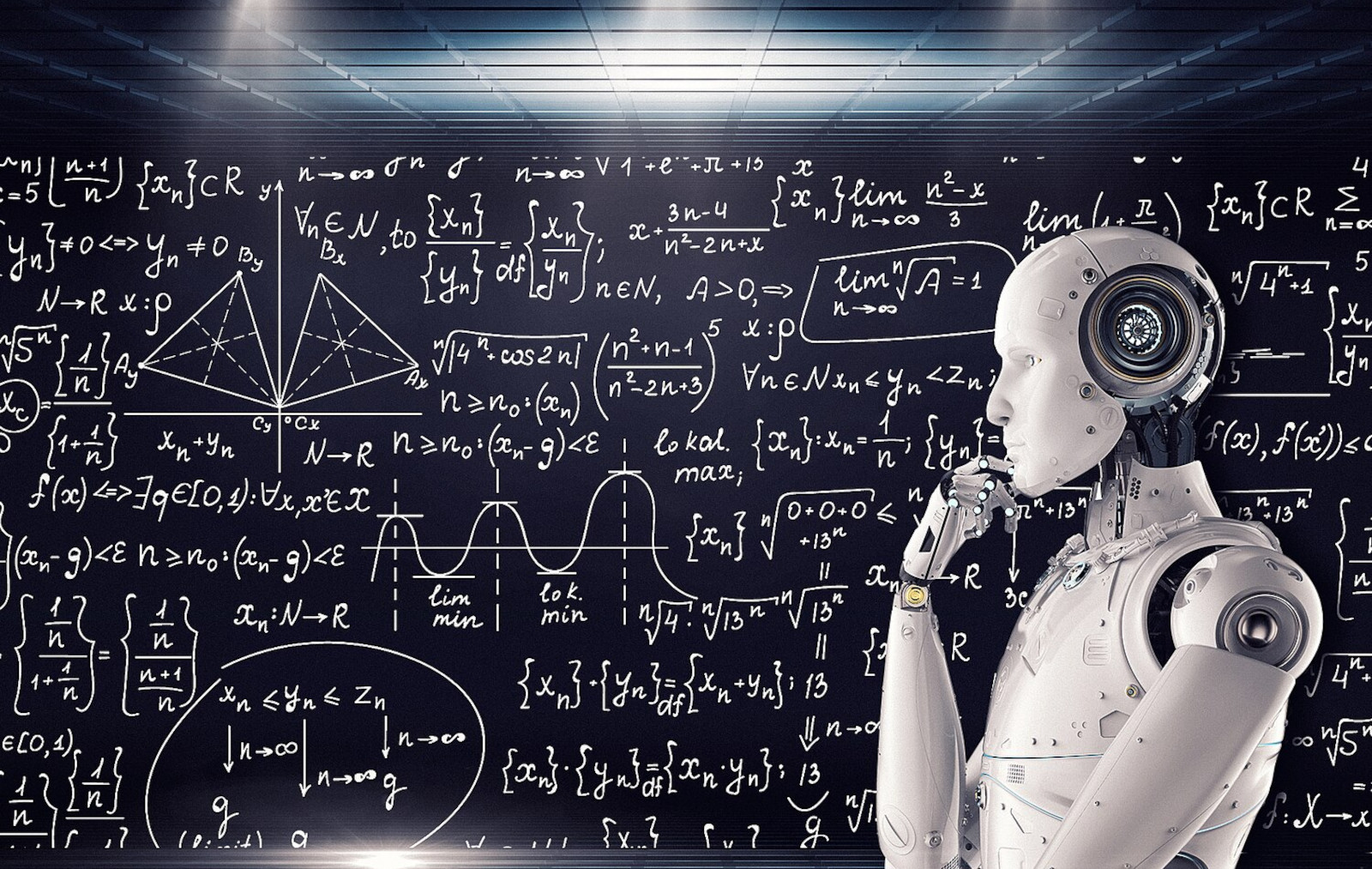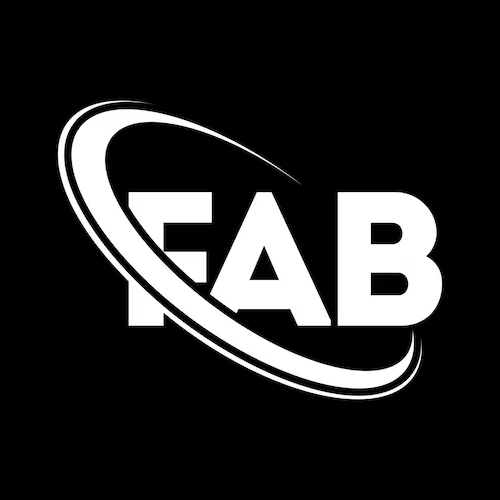KI ist ein Werkzeug ...
KI ist ein Werkzeug ... oder soll es zumindest sein. Aber ich sehe es ähnlich wie Ihr: Im Moment haben wir lediglich sogenannte „schwache KIs“ – also auf Deutsch: Die heutigen KIs, die wir so nennen, sind etwas bessere Such-Apps, gekreuzt mit Chatbots. Aber sie sind bereits jetzt sehr präzise. Ich verbringe mehr als ein Drittel meiner Softwareentwicklungszeit mit der KI, um nach Lösungen zu suchen. Suchmaschinen helfen manchmal besser – aber im Allgemeinen bevorzuge ich die KI. Ich kann ihr zum Beispiel eine Softwarefunktion beschreiben, die ich brauche, und sie generiert mir den Quellcode in der Programmiersprache meiner Wahl. Und sie ist sehr gut! Ich kann mehr als 90 % des Outputs der KI einfach nehmen, in meinen Programmcode kopieren, kompilieren – und es läuft 😲 … fehlerfrei!!! (10 % Fehlertoleranz ist beeindruckend für diese frühen Generationen.) Je besser Du deine Frage formulierst, desto hochwertigere Antworten bekommst Du zurück. (Natürlich: „Shit in, shit out“.)
Was ist hinter KI - schwache KI
Aber wenn es darum geht zu verstehen, was dahinter passiert, braucht es einiges an interdisziplinärem Vorwissen und Fähigkeiten in Bezug auf Programmierung, (Boolesche-) Algebra sowie Vektorenberechnung uvm. Man muss sich erst einarbeiten – und das bedeutet in diesem Fall eine steile Lernkurve. Es ist ein komplett neues Feld in der IT. Das Trainieren der KI hat eine neue, ganz eigene Semantik und einen eigenen Syntax. Wer zudem keine Vorkenntnisse in Programmiersprachen wie Python, ASM, C/C++, Java o. Ä. hat, dem steht eine noch steilere Lernkurve bevor. ;-)
Zukunft - starke KI
Nun gut – stellen wir uns mit dem Wissen über das Potenzial der heutigen „schwachen“ KI vor, was eine sogenannte
„starke“ KI alles erreichen könnte. Starke KIs könnten sich z.B weiterentwickeln (Was das auch immer konkret heißen mag) und selbst reproduzieren, sowie adaptieren und an neue Gegebenheiten anpassen. Sie speichern nicht nur statische Daten wie eine bessere „SearchApp X Suchmaschine“ sondern sind dazu fähig sich selbst weiter zu entwickeln (neue Fähigkeiten erlernen, Anpassung, Evolution) und sich zu reproduzieren. Hardware sowie Software Reproduktion ist denkbar. Falls wir die momentane Entwicklung der KI-Bots falsch einschätzen, könnte das ziemlich schnell, ziemlich schnell schiefgehen.
Die zukünftigen KIs werden hoffentlich (zumindest bei uns Normalbürgern) hauptsächlich als Gadget, Assistent oder Support-/Hilfe-Funktion eingesetzt. Aber die wirklich mächtigen KIs werden wohl von den Reichen und Mächtigen dieser Welt kontrolliert werden (wie immer) – aber genau
das müssen wir verhindern. Doch HALT! ... Hier beginnt das eigentliche Problem! Denken wir mal genau darüber nach...
Verantwortung und Regeln festlegen
Sollen wir allen Menschen auf der Welt ermöglichen, ihre eigene KI zu trainieren? Es gibt bereits jetzt zahlreiche Opensource Basis KIs die Jederman herunterladen und selbst trainieren kann. Oder sollen wir es einigen wenigen überlassen, die dafür sorgen sollen, dass Menschenrechte, Sicherheit, Privatsphäre etc. eingehalten werden? Das ist ein Dilemma! Unteranderem auch aus diesen Gründen, fordern immer mehr wichtige Stimmen (und das nicht erst seit gestern) einen Entwicklungsstopp bei KIs, um erst grundlegende Fragen zu klären und Regeln zu definieren – Fragen, die die Zukunft der gesamten Menschheit betreffen. Ich bin voll dafür!
Verantwortung von uns Allen
Klar steuern heute noch die Entwickler vieles – aber wenn sich die Regulierung, Macht und Politiker eingeklinkt haben, sich die KI dann reproduzieren kann und vollständig integriert ist, kann es plötzlich sehr schnell sehr schnell gehen 😟. Wie mit den Atomkraftwerken: Wir laden uns eine Last auf, deren Risiko wir nicht abschätzen können. Manche Risiken kann man besser kalkulieren, andere sind kaum abzuschätzen. Und das birgt eine grosse Gefahr. Vgl.
"Blackswan effect" - the impact of the highly improbable possibilities. Zu Deutsch: Das was wir oder über was wir noch nichts wissen, oder Umstände deren wir uns nicht bewusst sind, haben die grössten Auswirkungen auf uns.
Zukunft der KI
Noch sind wir nicht an diesem Punkt wo sich alles gegen Uns wendet. Aber achtet bitte besonders darauf, was in der Rüstungsindustrie passiert: Die autonomen Viecher, die da entwickelt werden gefallen mir überhaupt nicht – brutal, immense Kraft, wendig, dynamisch und schnell. Dann noch ein paar heftige Kill-Fähigkeiten und effektive Waffenfeatures - man verkauft sie an das Militär oder die Polizei – oder entwickelt sie gleich in deren Auftrag. Und dann haben wir den Salat! Schaut euch lieber nochmal Eure Sci-Fi-DVDs und Filme an – und überlegt euch, wie man solche Biester ausschalten könnte (oder müsste). 😉
Nein, kein Witz – die Lage ist ernst! Es besteht zwar keine akute Gefahr, dass uns die KI morgen alle komplett ausrottet … aber wenn wir jetzt die falschen Weichen stellen, stehen wir vielleicht bald schon vor einem Problem, dass wir heute noch gar nicht absehen oder erahnen können. Aus purer Naivität und Gier könnten wir uns ein Monster schaffen, dass wir evtl. nicht mehr einfach so bändigen können (Die ich rief, die Geister ... Werd ich nun nicht los. vgl.: Der Zauberlehrling, J. W. Goethe, Juli 1797).
Aber: Ja! Ich finde die jetzige KIs bereits hammermäßig und liebe es sie zu nutzen! Sie sind echte Meilensteine in der Entwicklung der IT. Ich wollte sogar Kurse für Einsteiger geben, habe eine Website/Subdomain erstellt und an Anschlagbretter bei MIGROS und COOP Zettel aufgehängt – aber leider hat sich niemand gemeldet ;-(( … schade! Es lohnt sich wirklich, sich das mal anzuschauen und mit der Materie zu beschäftigen. Die KI ist in vielen Bereichen eine großartige Hilfe. In Zukunft wird es zwei Gruppen von Menschen geben. Solche die KI nutzen und solche die es nicht tun.
Interim Fazit
Wie wir die Tools nutzen, die man uns gibt, liegt an uns. Aber damit das Ganze nicht zu einem großen Schadenpotenzial wird, müssen wir früh und verantwortungsbewusst handeln. KI ist kein Allheilmittel oder Zauberstab mit dem einfach alles besser wird. Aber wenn wir es schaffen, alles in die richtigen Bahnen zu lenken und die Entwickluing und Nutzung dieses System nicht dem Kapitalismus zu unterwerfen, dann kann es zu einem äußerst wertvollem evtl. sogar eines der wertvollsten Tools von unserer Zeit / Epoche werden.
Peace out, Family & Friends – bei Fragen gerne melden, ich bin offen für alles. Cheerz!
Kim David Hauser - 13.07.2025, Zurich Switzerland
Übersetzt mithilfe von Copilot (KI von Microsoft)
AI is a Tool ...
AI is a tool ... or at least it's supposed to be. But I see it much like you: at the moment we only have so-called “weak AI” – in other words, today’s so-called AIs are somewhat better search-apps combined with chatbots. But even now they are already very precise. I spend more than a third of my software development time using AI to search for solutions. Sometimes a search engine is better, but generally, I prefer AI. I can, for example, describe a software function I need, and it generates the source code I’m looking for in the programming language of my choice. And it's really good! I can take more than 90% of the AI’s output, paste it into my program source, compile it – and it runs 😲 … without errors!!! (10% error tolerance is impressive for this early generation.) The better you phrase your question, the higher the quality of the answer you get. (Remember: "Shit in, shit out".)
What’s Behind AI
But if you want to understand what’s going on behind the scenes, it takes some interdisciplinary prior knowledge and skills in programming, algebra, and vector math. You have to familiarize yourself first – which means a steep learning curve. It’s a completely new field in IT. And those who don’t already have experience in languages like Python, ASM, C/C++, Java, or similar will face an even steeper curve. ;-)
Future – Strong AI
Well then – let’s imagine, knowing the potential of today’s “weak” AI, what a so-called “strong” AI could accomplish. Strong AIs might be able to evolve (whatever that may mean in practice). They don’t just store static data like a better “App X Search Engine”. If we misjudge their development, things could go wrong very quickly.
Future AIs will hopefully (at least here among us average folks) mostly be used as gadgets, assistants, or helpful tools. But the truly powerful AIs will likely be controlled by the rich and powerful – and that’s exactly what we need to prevent. And that's where the real problem begins!
Should we make it possible for everyone in the world to train their own AI? Or should we leave it to a few who ensure that human rights, safety, privacy, etc., are respected? That’s a dilemma! That’s why more and more influential voices (for some time now) are calling for a halt in AI development, so that we can first address fundamental questions – questions that concern the future of all humanity. I’m all for it!
Responsibility Belongs to All of Us
Sure, today the developers still steer a lot – but once AI reproduces and becomes fully integrated, things could move very fast 😟. Like with nuclear power: we’re taking on a burden whose risks we can’t fully assess. Some risks can be calculated better than others – but others are hard to predict. And that’s dangerous.
The Future of AI
We're not at that point yet. But please pay close attention to what’s happening in the arms industry: those autonomous critters they're developing – I really don’t like them – brutal, immense strength, agile, dynamic, and fast. Add some serious kill skills and weapon features, and they’ll end up in the hands of the military or the police – or worse, developed directly on their behalf. Then we’re in trouble! You’d better rewatch your sci-fi DVDs and films and think about how to shut down those beasts (or how you could).
No joke – the situation is serious! There’s no immediate danger that AI will wipe us out tomorrow ;-) … but if we make the wrong decisions now, we could face a problem in the future that we can’t yet predict or even imagine.
But yes! I already think today’s AI is absolutely awesome, and I love using it! It’s a real milestone in IT development. I even wanted to offer beginner courses, created a website/subdomain, and hung up flyers at MIGROS and COOP – but unfortunately no one responded ;-(( … what a shame! It’s really worth checking out. AI is an incredibly helpful tool in so many areas.
How we use the tools we’re given is up to us. But to prevent all of this from becoming a major source of harm, we must act early and responsibly.
Peace out, family & friends – feel free to reach out with questions. I’m open for anything. Cheerz!
Kim David Hauser - 2025-07-13, Zurich Switzerland
Translated using Copilot (AI from Microsoft)
L’IA est un outil ...
L’intelligence artificielle est un outil ... ou du moins, elle est censée l’être. Mais je vois les choses un peu comme vous : pour l’instant, nous n’avons que ce qu’on appelle des « intelligences artificielles faibles » – en clair, les IA actuelles sont de meilleures applications de recherche, croisées avec des chatbots. Mais elles sont déjà très précises. Je passe plus d’un tiers de mon temps de développement logiciel à travailler avec l’IA pour chercher des solutions. Les moteurs de recherche sont parfois plus efficaces – mais en général, je préfère l’IA. Je peux par exemple lui décrire une fonction dont j’ai besoin, et elle me génère le code source dans le langage de programmation de mon choix. Et elle est très performante ! Je peux utiliser plus de 90 % de sa sortie telle quelle, l’insérer dans mon code, compiler – et ça fonctionne 😲 … sans erreur !!! (Une marge d’erreur de 10 %, c’est impressionnant pour une technologie aussi jeune.) Plus tu formules ta question avec précision, plus la réponse que tu reçois est qualitative. (Bien sûr : « Garbage in, garbage out ».)
Ce qu’il y a derrière l’IA
Mais pour comprendre ce qui se passe derrière, il faut des connaissances préalables pluridisciplinaires et des compétences en programmation, en algèbre et en calcul vectoriel. Il faut s’y plonger – et cela implique une courbe d’apprentissage raide. C’est un tout nouveau domaine dans l’informatique. Et si tu n’as pas déjà des bases en langages comme Python, ASM, C/C++, Java ou autres, la courbe est encore plus raide. ;-)
L’avenir – l’IA forte
Alors imaginons, avec tout ce que l’on sait du potentiel des « IA faibles » actuelles, ce que pourrait accomplir une « IA forte ». Ces IA pourraient évoluer d’elles-mêmes (quoi que cela veuille dire concrètement). Elles ne se contenteraient plus de stocker des données statiques comme une super « appli moteur de recherche ». Si nous sous-estimons leur développement, les choses pourraient très vite mal tourner.
Les IA du futur seront, espérons-le (du moins pour nous autres citoyens lambda), principalement utilisées comme gadgets, assistants ou outils d’aide. Mais les IA réellement puissantes seront très probablement contrôlées par les riches et les puissants – et c’est justement ce que nous devons éviter. Et c’est là que commencent les vrais problèmes.
Devrait-on permettre à tout le monde de former sa propre IA ? Ou laisser cela à une minorité de personnes censées garantir le respect des droits humains, de la sécurité, de la vie privée, etc. ? C’est un dilemme ! C’est pourquoi de plus en plus de voix influentes (depuis un certain temps déjà) réclament un moratoire sur le développement des IA, afin de clarifier d’abord les questions fondamentales – des questions qui concernent l’avenir de toute l’humanité. Et je suis totalement d’accord avec ça !
Une responsabilité partagée
Bien sûr, aujourd’hui encore, ce sont les développeurs qui gardent la main – mais une fois que l’IA pourra se reproduire et s’intégrer complètement, les choses pourraient s’accélérer très vite 😟. C’est comme les centrales nucléaires : on prend une charge dont on ne mesure pas bien le risque. Certains risques sont bien évaluables, d’autres beaucoup moins. Et cela, c’est dangereux.
Le futur de l’IA
Nous n’en sommes pas encore là. Mais soyez particulièrement attentifs à ce qui se passe dans l’industrie de l’armement : les créatures autonomes qu’on y développe ne me plaisent pas du tout – brutales, puissantes, agiles, dynamiques et rapides. Ajoutez quelques capacités de combat et armements, et on les vend à l’armée ou à la police – ou pire, on les développe directement sur commande. Et là, on est mal ! Regardez donc à nouveau vos vieux films de science-fiction, et réfléchissez à comment désactiver ces bêtes (ou comment on pourrait le faire).
Non, ce n’est pas une blague – la situation est sérieuse ! Il n’y a pas de danger immédiat que l’IA nous éradiquera demain ;-) … mais si on prend les mauvaises décisions aujourd’hui, on pourrait bientôt faire face à un problème qu’on ne peut même pas encore imaginer.
Mais oui, j’adore déjà l’IA actuelle, et je prends beaucoup de plaisir à l’utiliser ! C’est une vraie avancée dans l’évolution de l’IT. J’ai même voulu donner des cours pour débutants, j’ai créé un site web / une sous-domaine, mis des affiches chez MIGROS et COOP – mais personne ne s’est manifesté ;-(( … dommage ! Ça vaut vraiment la peine de s’y intéresser. Dans plein de domaines, l’IA est une aide précieuse.
L’usage que nous faisons des outils qu’on nous donne dépend de chacun. Mais pour éviter qu’ils ne deviennent une source de grands dangers, il faut agir tôt – et avec responsabilité.
Peace à vous, famille & amis – si vous avez des questions, n’hésitez pas à me contacter. Je suis ouvert à tout. Cheerz!
Kim David Hauser - 13.07.2025, Zurich Switzerland
Traduit avec Copilot (IA de Microsoft)
L’IA è uno strumento ...
L’intelligenza artificiale è uno strumento ... o almeno dovrebbe esserlo. Ma la penso come voi: al momento abbiamo solo quelle che chiamiamo “IA deboli” – cioè, le IA di oggi sono poco più che app di ricerca migliorate mescolate a chatbot. Ma sono già molto precise. Trascorro più di un terzo del mio tempo di sviluppo software lavorando con l’IA per cercare soluzioni. A volte un motore di ricerca aiuta di più – ma in generale preferisco l’IA. Posso descriverle, per esempio, una funzione software di cui ho bisogno e lei mi genera il codice sorgente nel linguaggio di programmazione che voglio. Ed è davvero brava! Posso usare più del 90% del suo output così com’è, copiarlo nel mio codice, compilare – e funziona 😲 … senza errori!!! (Il 10% di margine d’errore è impressionante per una generazione così precoce.) Più formuli bene la tua domanda, più le risposte che ottieni saranno di qualità. (Ovviamente: “spazzatura in entrata, spazzatura in uscita”.)
Cosa c’è dietro l’IA
Ma per capire cosa succede dietro le quinte, servono conoscenze interdisciplinari e abilità in programmazione, algebra e calcolo vettoriale. Serve tempo per orientarsi – e significa affrontare una curva di apprendimento ripida. È un campo completamente nuovo nell’informatica. E per chi non ha esperienza in linguaggi come Python, ASM, C/C++, Java o simili, la curva è ancora più ripida. ;-)
Futuro – IA forte
Immaginiamo ora, con le conoscenze che abbiamo sull’IA “debole”, cosa potrebbe realizzare una “IA forte”. Le IA forti potrebbero, forse, evolversi da sole (qualunque cosa significhi esattamente). Non si limiterebbero a salvare dati statici come una super “app motore di ricerca”. Se sottovalutiamo il loro sviluppo, le cose potrebbero degenerare molto rapidamente.
Le IA del futuro saranno – si spera (almeno per noi comuni mortali) – usate principalmente come gadget, assistenti o strumenti di supporto. Ma quelle davvero potenti saranno molto probabilmente controllate dai ricchi e potenti – ed è proprio questo che dobbiamo evitare. Ed è lì che iniziano i veri problemi.
Dovremmo permettere a tutti nel mondo di addestrare la propria IA? Oppure lasciarlo nelle mani di pochi che garantiscano il rispetto dei diritti umani, della sicurezza, della privacy, ecc.? È un dilemma! Ecco perché sempre più voci influenti (già da tempo) chiedono di fermare lo sviluppo delle IA per prima cosa chiarire le questioni fondamentali – quelle che riguardano il futuro dell’intera umanità. E io sono pienamente d’accordo!
Responsabilità condivisa
Certo, oggi sono ancora gli sviluppatori a tenere il timone – ma quando l’IA inizierà a riprodursi e sarà completamente integrata, tutto potrebbe cambiare molto in fretta 😟. Proprio come con le centrali nucleari: ci stiamo caricando una responsabilità il cui rischio non possiamo prevedere. Alcuni rischi si possono valutare meglio, altri sono praticamente imprevedibili. E questo è pericoloso.
Il futuro dell’IA
Non siamo ancora arrivati a quel punto. Ma prestate molta attenzione a quello che succede nell’industria bellica: quelle creature autonome che stanno sviluppando non mi piacciono per niente – brutali, potentissime, agili, dinamiche e veloci. Aggiungici qualche capacità letale e funzioni d’arma, e vengono vendute all’esercito o alla polizia – o peggio, sviluppate direttamente per loro. E lì sarà un bel casino! Meglio rivedersi qualche vecchio film di fantascienza e pensare a come si potrebbero disattivare (o almeno provarci).
No, non è uno scherzo – la situazione è seria! Non c’è un pericolo immediato che l’IA ci sterminerà domani ;-) … ma se oggi prendiamo decisioni sbagliate, potremmo ritrovarci presto con un problema che non possiamo nemmeno immaginare ora.
Detto ciò: sì! Penso che l’IA attuale sia fantastica e adoro usarla! È una pietra miliare nello sviluppo dell’IT. Volevo persino tenere corsi per principianti, ho creato un sito web / sottodominio e appeso volantini alla MIGROS e al COOP – ma purtroppo nessuno si è fatto vivo ;-(( … peccato! Vale davvero la pena di darle un’occhiata. In tanti ambiti, l’IA è un aiuto prezioso.
L’uso degli strumenti che ci vengono dati dipende da noi. Ma per evitare che causino danni troppo grandi, dobbiamo agire presto – e con responsabilità.
Pace a tutti, familiari e amici – se avete domande, scrivetemi pure. Sono aperto a tutto. Cheerz!
Kim David Hauser - 13.07.2025, Zurich Switzerland
Tradotto utilizzando Copilot (IA di Microsoft)







